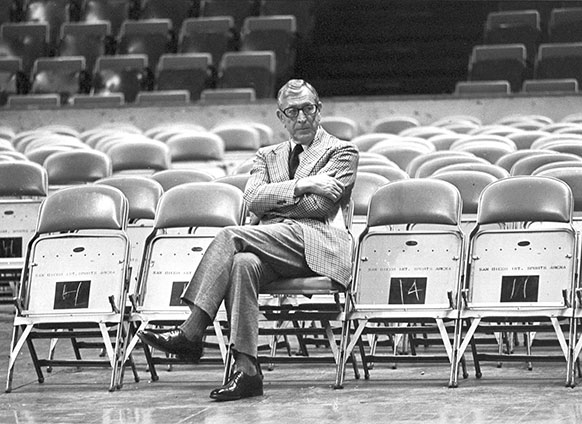
Industriousness is defined in the Pyramid of Success as follows: “There is no substitute for work. Worthwhile results come from hard work and careful planning.”
“Failure to prepare is preparing to fail.”
Although many people focus on Coach’s emphasis on hard work, that is only half of the equation. Careful planning, which he was careful to include in the definition, is equally important.
“Failure to prepare is preparing to fail,” was one of John Wooden’s favorite maxims. He employed it for his teams as well as in his personal life, stressing to them the importance of preparing properly in order maintain the balance necessary for true success and fulfillment. “The most important word in our language is ‘love’ and the second most important word is ‘balance,’” he was fond of saying.
In order to execute properly and keep balance in his life between his job and his family, Coach Wooden was an expert in time management. This required very careful planning, indeed.
Coach did not equate industriousness to three- or four-hour practices every day with his team simply to put in the extra hours, nor did he think it necessary to work six days a week for 10 hours a day to become a great basketball coach. That would have thrown off the all-important balance that proper preparation could help maintain.
Instead, John Wooden’s basketball practices at UCLA were between 90 minutes and two hours long depending on what part of the season it was. Far shorter than the practice time of most of his peers, the practices always started and stopped on time; they were not made longer if the team was not performing well and seemed to need additional work. His secret was simple: extraordinary preparation.
Every detail was recorded on an index card that Coach and all of his assistants carried. These cards gave a minute-by-minute breakdown, as well as how many basketballs would be needed at each area of the court at each point in time for each and every drill to be run that day.
“I kept notes with the specifics of every minute of every hour of every practice we ever had at UCLA. When I planned a day’s practice, I’d look back to see what we had done on the corresponding day the previous year and the year before that,” he later wrote. These notes allowed him to “track the practice routines of every single player for every single practice session he participated in while I was coaching him.”
This constant attention to detail and continuous improvement built the consistency that led to the greatest dynasty in the history of college basketball.
In fact, Coach laughed a little about his own meticulous preparation in an interview in 2002: “I could tell you what we did every minute of practice in my 27 years at UCLA. I could go back to the 1948-49 year and tell you what we did on November the 15th, minute by minute. I think that doing those plans helped me tremendously as I could always refer back to them. I would always make little notations following each practice, maybe some activities went too long, a couple of minutes or five minutes too long on this, or we need a bit more attention to this.”
Coach Wooden’s careful planning, precise execution of his plan, immediate written results of his plan, evaluation of those results, and then detailed adjustments to his next plan were a critical cornerstone to his success.
This constant attention to detail and continuous improvement built the consistency that led to the greatest dynasty in the history of college basketball. “Big things are accomplished only through the perfection of minor details,” he said. “If you do not have the time to do it right, when will you have time to do it over?”
Related: Nothing Will Work Unless You Do







